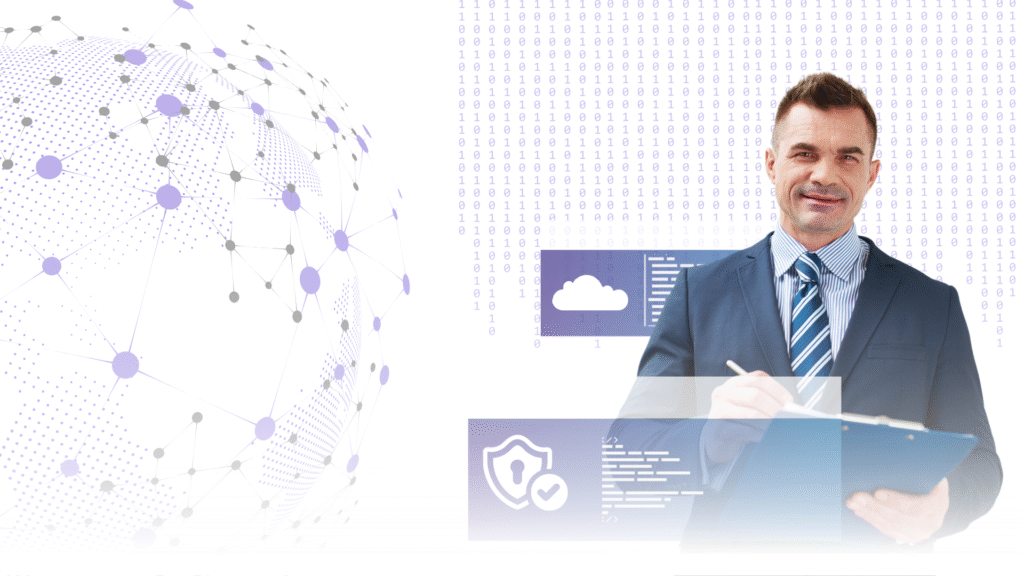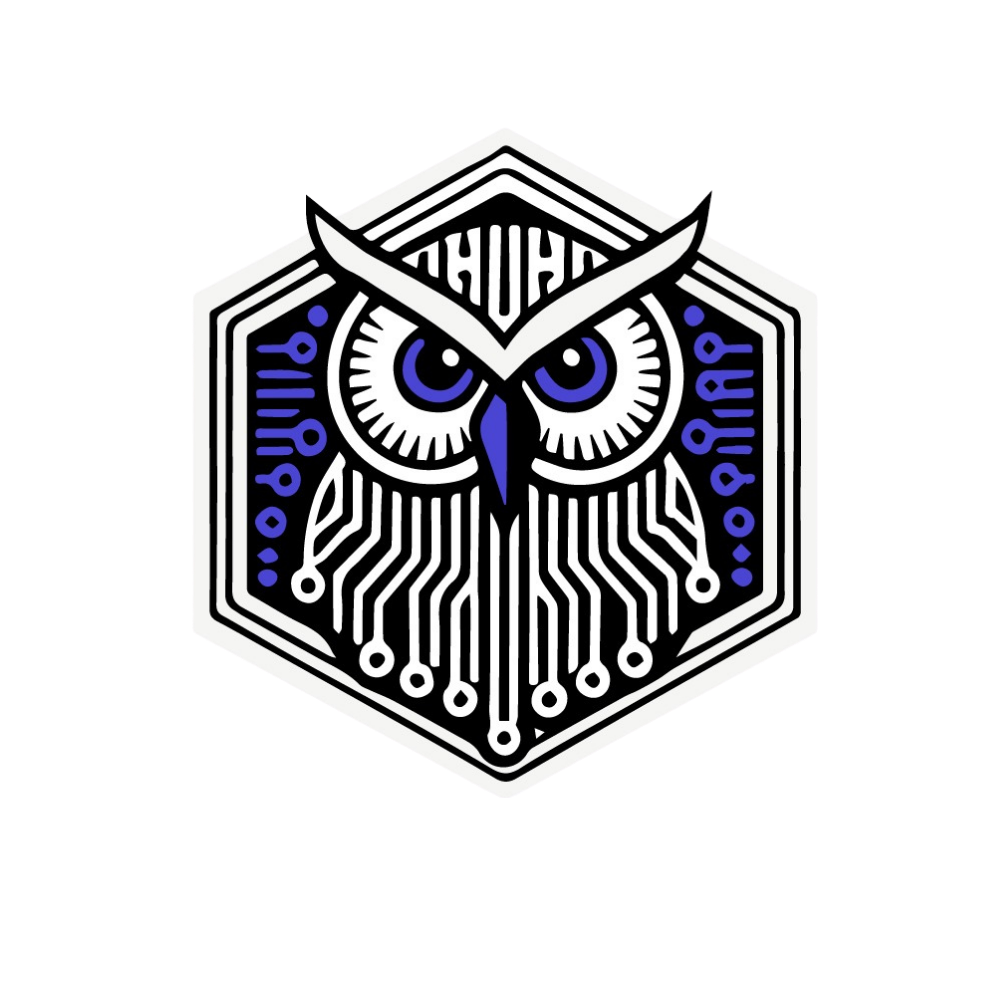ISO/IEC 42001 – AI Management System Implementation Training
Duration: 5 Days (40 Hours)
Mode: Instructor-Led Live Online or Classroom
Format: Implementation and governance of AI using ISO 42001:2023, covering risk assessments, ethical considerations, lifecycle management, and auditing
Includes: AI governance labs, policy templates, ethical bias mitigation exercises, audit prep, and certification of completion
Course Overview
This immersive training teaches professionals to design, build, and manage a compliant Artificial Intelligence Management System (AIMS) based on ISO/IEC 42001. ISO/IEC 42001:2023 is the world’s first AI-specific management standard, providing “comprehensive guidance [to use] AI responsibly and effectively”. In this course, you’ll master each clause of ISO 42001 (clauses 4–10) and learn practical strategies for AI risk assessment, bias mitigation, audit readiness and documentation. No prior certifications are required – beginners and seasoned professionals alike can join. Upon completion you receive a Wiseman CyberSec Certificate of Completion, demonstrating your readiness to lead AI governance and compliance projects aligned with global trust and safety goals
Comprehensive ISO 42001 Coverage
Hands-on Risk and Bias Training
Ethics and Compliance Focus
Audit and Documentation Preparedness
Expert Instruction & Support
GET A FREE DEMO CLASS
Skills You’ll Learn
Techniques to gather open-source intelligence and map organizational vulnerabilities (using tools like Google Dorks, Recon-ng, Maltego, etc.).
Define and document your AIMS scope, AI policies, roles and responsibilities as per ISO 42001 requirements
Perform AI risk analyses and impact assessments. Identify, evaluate and treat AI risks (technical, ethical, business and social) using ISO 42001’s risk management framework
Learn techniques to detect and mitigate bias and fairness issues in AI models, aligning with ISO 42001’s emphasis on trust. You’ll practice controls that “assess the bias of AI models and test the robustness of the system, helping [build] a more trustworthy AI system
Develop and execute an internal audit program for your AIMS. We teach how to gather evidence, audit processes against ISO 42001 clauses, and prepare corrective action plans for continual improvement
Create AI governance documents, policies and training materials. Learn to establish metrics and review cycles so your AI program adapts over time – a core principle of ISO systems
Communicate AI governance effectively. The course covers how to engage stakeholders and senior management in AI strategy and policy, reflecting ISO 42001’s requirement for top management commitment
Integrate AI initiatives with organizational goals. Skills include aligning AI governance to business objectives and regulatory frameworks (e.g. EU AI Act), as promoted by ISO/IEC 42001 for trustworthy AI deployment
Why Choose WisemanCyberSec
Wiseman CyberSec is renowned for expert-led, practical cybersecurity training. Our instructors are industry veterans who translate standards into actionable skills. We emphasize active learning – expect interactive labs, real-world scenarios and group projects (we even simulate AI model audits and risk workshops). All course materials are aligned with official ISO/IEC 42001 guidelines and updated continuously with the latest AI governance best practices. Graduates join a global community and receive ongoing career support (mentorship, job assistance, etc.)wisemancybersec.com. In short, we don’t just teach theory – we prepare you to implement ISO 42001 in your organization from day one.
Who Should Enroll
This training is ideal for professionals in AI governance, compliance, ethics, risk or product management. Key roles include AI Governance Leads, Compliance Officers, Data Scientists/Engineers working on AI, Risk Managers, Ethical AI Designers, and Cybersecurity/IT Audit professionals. Business leaders sponsoring AI initiatives will also benefit. No matter your background, if you’re involved in deploying or overseeing AI systems and need a structured, auditable approach, this course is for you.
Prerequisites
No formal prerequisites are required – the course is open to all professionals. While prior IT or AI experience can help, we start with the basics of ISO management systems and AI governance. Ideal participants are curious about AI policy and ready to engage in hands-on exercises. (By comparison, BSI’s lead implementer course is “designed for those with information security responsibility” and new managers implementing AIMS,but our training welcomes beginners as well.)
Course Curriculum
Clause 4 – Context of the Organization
Define your AIMS scope and constraints. We guide you to analyze how AI fits in your business (objectives, strategy, and external trends), identify all relevant stakeholders (customers, regulators, partners, etc.), and document internal/external issues affecting AI use . You’ll practice creating an AI governance policy aligned with organizational needs and risk profile.
Clause 5 – Leadership
Establish governance and responsibility. Learn to develop an AI policy endorsed by top management, assign clear roles and accountability (e.g. AI risk officer, review board), and secure executive sponsorship for AI initiativesTraining includes exercises on communicating the AIMS vision throughout the organization.
Clause 6 – Planning
Assess and treat AI risks. This module covers performing an AI impact assessment to identify technical, ethical and societal risks of AI systems. You’ll learn to conduct AI-specific risk analysis (similar to a privacy impact assessment) and develop an AI risk treatment plan, including mitigation for biases, data quality issues, and compliance gaps.
Clause 7 – Support
Allocate resources and skills. We teach how to define the human, technical and financial resources needed for your AIMS, and how to establish training and competence requirements. You’ll set up processes for awareness and communication of AI policies, and for maintaining documentation (logs, metrics, records) that demonstrate control of your AI systems
Clause 8 – Operation
Implement AI controls. Put planning into action by operationalizing the AIMS. This includes executing the AI risk treatment plan through practical controls (e.g. data management procedures, model validation, bias testing) and developing standardized AI development/deployment processes Hands-on labs cover how to integrate these controls into your AI system lifecycle.
Clause 9 – Performance Evaluation
Measure and audit the AIMS. Learn to monitor and evaluate AI governance effectiveness. We show you how to define KPIs, conduct internal audits and management reviews, and document performance against objectives For example, you’ll practice creating an internal audit checklist for AI controls and using results to ensure compliance with ISO 42001 requirements.
Clause 10 – Improvement
Continuously enhance your AIMS. Finally, cover corrective actions and continual improvement. Training includes how to identify nonconformities in your AI processes, plan corrective actions, and iterate on your AIMS using the PDCA cycle. You’ll come away with strategies to keep the management system agile as AI technologies and business contexts evolve.
Certification Path
On completing the course you receive a Wiseman CyberSec Certificate of Completion for ISO/IEC 42001 Implementation Training. (This is a professional certificate from Wiseman, not an official ISO audit.) Along with the certificate, we provide guidance on audit readiness: templates and checklists to prepare your organization for an ISO/IEC 42001 audit. While ISO/IEC 42001 certification itself is issued by accredited bodies (e.g. ISO registrars), our training ensures you understand all requirements. As TÜV SÜD notes, an ISO/IEC 42001 certificate “carries the weight of trust and reputation. this course readies you to achieve that level of compliance.

Training Format and Features
Our training is delivered by expert instructors and features a mix of lectures, group exercises and interactive labs. You can attend live (online or in-person) or take a self-paced on-demand track – BSI-style flexible formats are offered. Course features include real-world case studies (e.g. GDPR & AI bias scenarios), hands-on workshops (performing mock AI risk assessments), and downloadable resources (checklists, policy templates). We emphasize practical learning: after each module you’ll complete activities like drafting part of an AI policy or simulating an internal audit. Continuous support is provided through Q&A sessions, community forums, and post-course materials to reinforce your new skills.
Career and Organizational Use Cases: Graduates will be prepared to lead AI initiatives in many settings. For example, in finance or healthcare – where AI decisions greatly impact people – you can implement safeguards that ensure fairness and accountability . In technology firms deploying AI products, you’ll help build consumer trust by adhering to ISO 42001’s rigorous governance framework. For enterprises aligning with regulations, ISO 42001 skills enable compliance with laws like the EU AI Act. Organizations can thus demonstrate best-practice AI management (meeting stakeholders’ demands for ethics and safety). On the personal side, this certification opens doors to roles such as AI Governance Officer, Data Risk Manager, AI Ethics Lead, or Consultant – all in-demand careers at the intersection of AI and security

Frequently
Asked Questions
ISO/IEC 42001:2023 is the new international standard for managing AI systems (AIMS). It defines requirements for establishing, implementing and improving an AI management system By following it, organizations can ensure their AI products are used responsibly, ethically and safely – addressing issues like bias, privacy and accountability
Any professional involved with AI governance, compliance or security. Target audiences include compliance officers, risk managers, data scientists, AI product owners, IT auditors and cyber/legal professionals. If you need to implement or audit AI systems and align them with global standards and regulations, this training is for you
No formal prerequisites are needed. We start with the fundamentals of ISO systems and AI governance. A basic understanding of AI or cybersecurity concepts helps, but the course is designed for beginners and experts alike. (It is analogous to an ISO lead-implementer course: BSI notes such training is for those but we welcome all.) “planning to lead and implement a system
You will receive a Wiseman CyberSec Certificate of Completion for ISO/IEC 42001 Implementation Training. This shows you have been trained on ISO 42001. It is not an official ISO audit certificate, but it signifies your mastery of the material. We also guide you on preparing documentation and processes for a future ISO/IEC 42001 audit, should your organization pursue formal certification.
We offer flexible delivery: live instructor-led training (online or classroom) or self-paced elearning Every format includes interactive components: for example, live sessions use polls and group breaks, while online students complete virtual labs. All learners have access to the same rich curriculum and support.
ISO 42001 is similar in structure to ISO 27001 but specifically tailored to AI. In fact, it follows the same clause structure(410) and PDCA cycleWe build on familiar concepts like risk management and internal audits, but apply them to AI ethics and governance. If you’ve taken ISO 27001 or privacy (ISO 27701) courses, you’ll recognize the format, with new AI-focused content.
Implementing ISO 42001 helps organizations build trust in AI. It provides a clear framework to address AI risks, demonstrate due diligence to regulators/customers, and continuously improve AI practicesOrganizations in tech, finance, government and beyond can use the AIMS framework to ensure their AI projects are transparent and socially responsible, aligning with global safety goals and giving them a competitive edge

